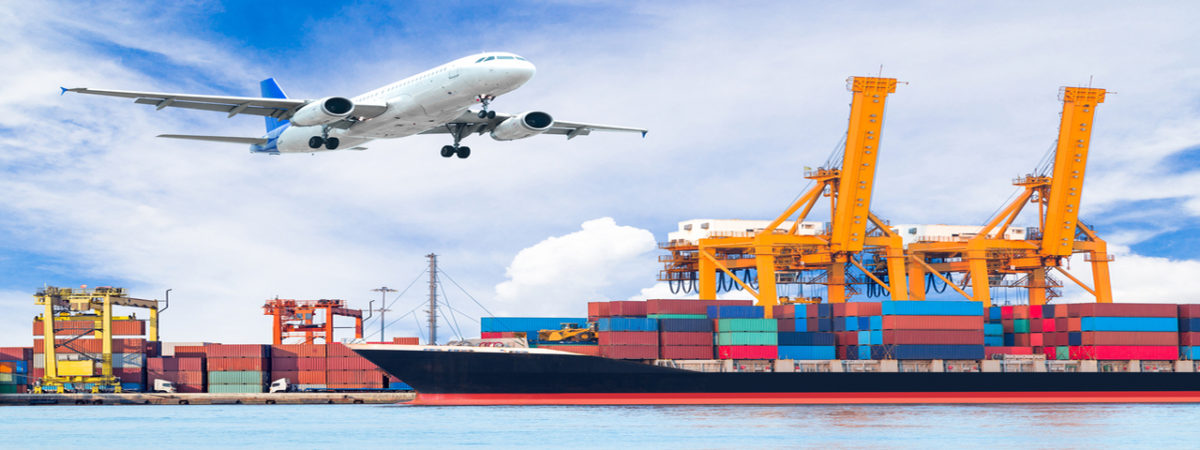A comprehensive free trade deal must also guarantee freedom of movement
SUGGESTED



The flip side of that argument is that, in contrast to many other European countries, we have comparatively few defensive interests in terms of goods. Unlike a Germany, for example, where there might be political pressure to protect the automotive industry when concluding trade deals, we – already having a very open economy – can accept most trade-in-goods deals without upsetting local manufacturers.
Consequently, we are already seeing the logical outcome of that dynamic with a number of nations seeking agreements for trade in goods with the UK. For them any deal that does not have to pander to the defensive interests of 27 other states as well is much easier to conclude. But don’t get too excited just yet.
While trade in goods can have behind-the-border complications, with non-tariff barriers in conformity and rules of origin, the instruments underpinning trade in goods are significantly less complex than is the case for trade in services. For the former, even a simple WTO arrangement is often enough to meet the requirements of wealth creation; open markets, competition and property rights.
For the delivery of services, however, that type of arrangement is insufficient. If I want to provide a service across borders, I must have the economic rights to establish my business in that territory and the right to bring in expertise to manage, maintain and develop that business as appropriate.
This is true of any advanced trade deal covering services, and there are provisions for movement of workers in CETA and TTIP. It is important to establish the economic justification for free movement of workers and to emphasize that the requirement is not unique to the Single Market (EEA) trade agreement.
So what is the European Single Market? It is the most comprehensive trade agreement on the planet, bar none. It is an agreement between two parties, those being the European Union (European states that intend to federate) and EFTA (European states that don’t intend to federate). Access to the single market is contingent upon belonging to one of these bodies.
Crucially the EEA provides mechanisms such as financial passporting that make trade in services possible (note that the Swiss trade through London because they are outside the EEA). Even if our continued membership of the EEA is only until such time as we have finished dealing with issues arising from leaving the EU, continued EEA membership is an indispensable bridging position from which to unpick 40 years of EU integration, in relative economic safety.
EFTA – the non-federating group – is a trade association that the UK helped found, and was a member of before joining the EEC. It provides separate monitoring and arbitration mechanisms to mirror those provided by the ECJ for EU members, but crucially, it does not try to act as a supranational government. EFTA have already confirmed that they would be more than happy to discuss having us back.
EEA access through EFTA is an established mechanism that we can pick ‘off the shelf’, without the normal, sometimes multi-decadal process of negotiation. This is key because once Article 50 is invoked we have two years to agree both the separation and what the new arrangements should look like. Neither side wants us to hard-exit to WTO rules, but we should not expect a better deal than that available to existing members. That would create an existential crisis for the European project far greater than the loss of the UK.
So EU states are actually EU/EEA states. We just want to switch from EU/EEA to EFTA/EEA, who conform to EEA rules, but not most of the EU ones. The breakdown in the Acquis is that about 79% of the laws relate to the EU only, and about 21% to the EEA. For example, a UK in EFTA/EEA would be able to abolish the much-criticised ‘tampon tax’.
During the campaign, Remain worked very hard at smearing the ‘Norway option’, perpetuating the myth that you could ‘take back control’ of 79% of the Acquis by returning it to the British parliament, but in doing so we would have “no say” over the remaining 21%.
Like so many of the claims of the period, this is substantially untrue. Of the 21% of Single Market (EEA) law, about 90% is produced by international bodies like OECD, UNECE and ISO. They primarily relate to compliance – your widget matching the specification of my widget.
Until now the UK has been bound by the common position and has been represented by the European Commission at these bodies. Regaining our votes – in organizations that often rely on principle of unanimity – gives the UK many effective vetoes in the creation of new trade law.
The balance of EEA law relates to the four freedoms, movement of capital, goods, services and workers. As discussed these are economic rights common to any sufficiently advanced trade deal covering services. This is why free movement will be a red line for the EU in Article 50 negotiations and why, to get EEA access, we MUST disaggregate the economic principle of free movement from the notion of “open borders” in the public mind before we get there.
Being cautiously optimistic, polling suggests public opinion is 2:1 in favor of continued Single Market membership over limits on free movement and the colleagues (even Schäuble) seem prepared to offer the UK an EEA deal.
If Remoaners don’t cede the argument on EEA membership to the vocal anti-free-movement minority because they are still sulking, and if someone from the Civil Service can explain these facts of life to David Davis, then we still have every chance of making a success of Brexit.
7 thoughts on “A comprehensive free trade deal must also guarantee freedom of movement”
Comments are closed.




Nope. We should have a points system for EU nationals and only allow in those who are qualified for specific jobs. We should not admit any riff raff. If the EU doesn’t like it, we should just walk away and go for WTO rules. Not ideal but perfectly legal. I’m sure the EU which benefits by the 80 billion Euro deficit we run with them wouldn’t let it get to that. But we should not cave in over free movement. Indeed we should deport those EU citizens here on benefits with ho job.
Dr Eveil, it may be wise for you to stop assuming that is there is a self-evident majority in the UK in favour of ending free movement. Free movement is A Good Thing. Many people love it. No-one would be “caving in” by retaining it. It’s a beneficial two-way street. PS The referendum was only about leaving the EU, not about ending free movement. PPS See Norway or Switzerland, both of whom are outside the EU but with free movement.
“We should have a points system for EU nationals and only allow in those who are qualified for specific jobs.”
If ‘we’ means employers who have to sift applications, use their own ranking and interview criteria and choose the most able candidate in their view, then I’m all for it. If ‘we’ means the UK government setting up committees to say who has the points to come, then no thanks.
An interesting piece, and we need more of this to remind people that the words “free movement” and “immigration” didn’t appear anywhere on the ballot paper.
Speaking as a remain campaigner, I also agree that some of what’s coming out of the remain side is counter-productive. Few remain voters or even activists ever loved the EU as institution. Instead what mattered to most of us were the benefits membership gives us.
The model outlined here would keep those benefits intact while being true to the outcome of the vote on 23 June.
The EU intends to play hardball with the UK for political reasons. Economic sense would dictate that free trade is beneficial to all, more to the EU than to the UK, which has a substantial trade deficit with the EU. But the need to be seen to be tough is likely to win the day. The UK CANNOT concede the point that we won’t accept free movement of people in its present form, so we are likely to be forced into the WTO position. That could be a good thing if we unilaterally accept free trade. The cost of living will plummet. Areas like agriculture, which comprises 1% of the UK economy, could be supported by treasury grants. We can save negotiations which may prove costly, as we would need no trade agreements. Countries like New Zealand and Singapore have prospered this way.
Immigration control was one of the prime movers that produced the ‘leave’ result.
Open borders is a ridiculous notion, allowing in members of ISIS, al qaeda, taliban,
nusra front, any terror organisation you care to mention, with zero vetting cos that would be “Islamophobic”. There are enough problems with those already here, and home-grown monsters [Choudary, anyone?] without welcoming all and sundry.
Besides that, the benefits costs of many of these so-called ‘refugees’ are huge and as Choudary proudly said, part of the financial Jihad.
Australia’s immigration control is an example to the world. A simple points system and
zero tolerance for illegal arrivals- with a set allocation for genuine refugees.
Since this was introduced there have been ZERO deaths at sea and NO boats have made it to the mainland. QED.